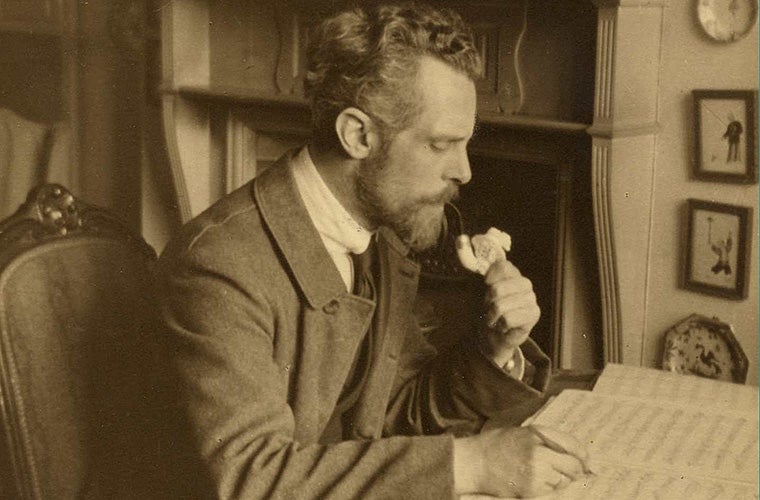
Joseph Jongen
1873 - 1953
Biography
Joseph Jongen (December 14, 1873 - July 12, 1953) was a Belgian organist, composer and music teacher. He was a composer who is time and again measured only second to César Franck among all Belgian composers.
Marie Alphonse Nicolas Joseph Jongen was born in Liège, Belgium. He was a child prodigy, who entered the Liege Conservatory in Belgium at the "extraordinary" age of 7 years old where he would spend the next sixteen years, studying under teachers Sylvain Dupuis and Jean Théodore Radoux and Charles Marie Danneels. He began composing and making a name for himself by the age of 13.
During the 1890's, he worked as an organist at churches in Liège. In 1891, he won first place prize for a Fugue. He also received his honors degree in piano and in 1894 his string quartet won first prize in the Royal Academy of Belgium competition and his cantata Comala won him the prestigious Grande Prix de Rome in 1897.
With the prize money from the Grande Prix, he traveled through Europe. During this period he took composition lessons from Richard Strauss and was introduced to Gabriel Fauré and Vincent d'Indy and became knowledgeable with the Schola Cantorum's educational system in Paris. He returned to Belgium in 1902 and was appointed professor of harmony and counterpoint at the Conservatory of Liège. By 1905, he had moved to Brussels teaching at the Scola Musicae, the Belgian equivalent of the Schola Cantorum all while commuting to the Liège Conservatory.
He married in 1909 and the outbreak of World War I in 1914, his family fled to safety of England. While in England, he formed the Belgian Piano Quartet with violinist Désiré Defauw, violist Lionel Tertis and cellist Émile Doehaerd. He performed regularly as organist and pianist. After World War I, he returned to Belgium in 1920 where he began teaching at the Brussels Royal Conservatory and in 1925 to 1939 became its director. His brother, Léon Marie Victor Justin Jongen, replaced him as director of the Brussels Conservatory in 1939 (he was also a composer).
After his retirement from the conservatory, he dedicated himself to composing and helping to design an organ for Belgian Radio. He was considered one of the most renowned composers in modern Belgium for his style and technique. He died at Sart-Lez-Spa in Belgium on July 12, 1953.